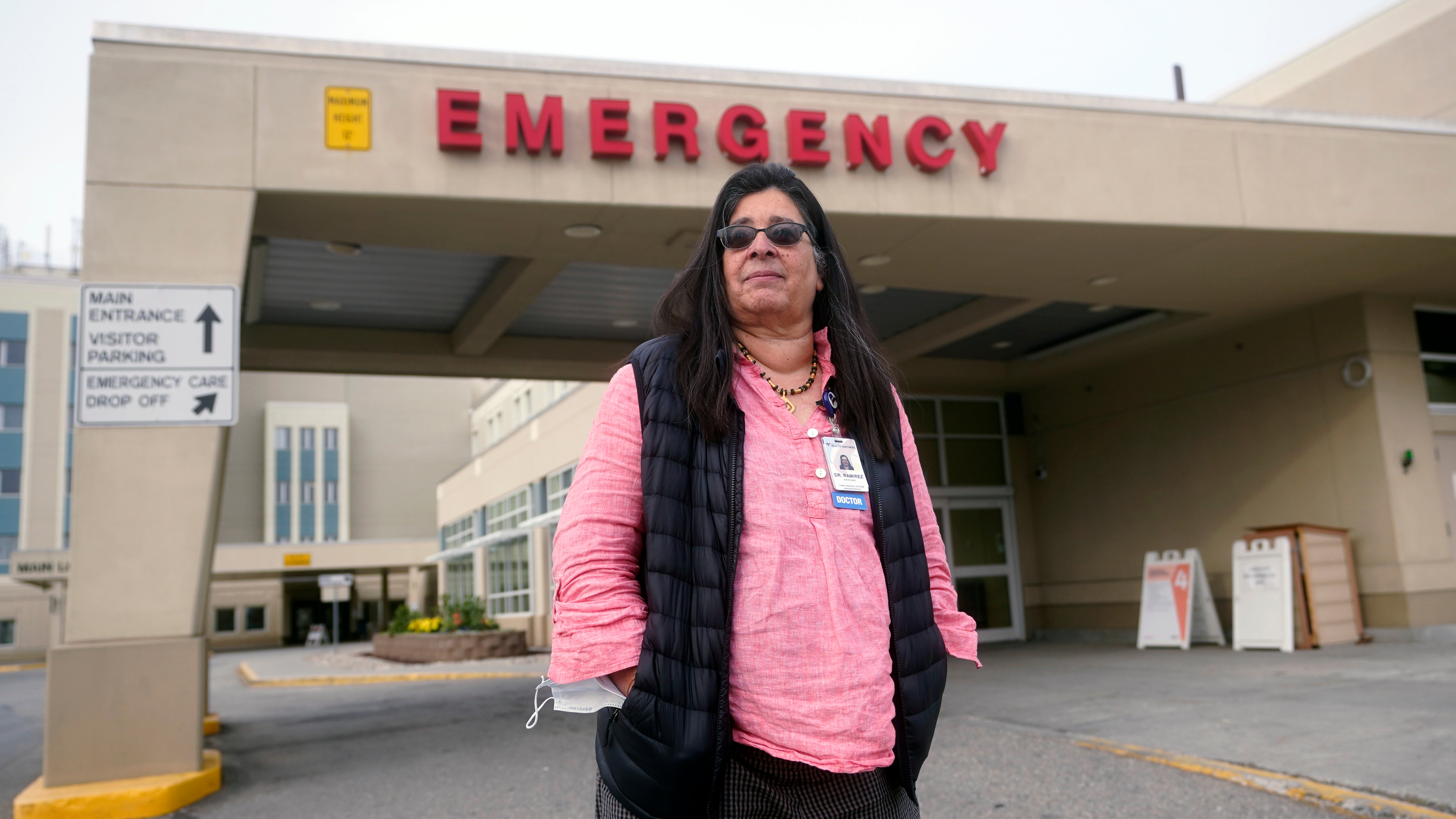3rd Alaska hospital invokes crisis care mode in COVID spike
A third Alaska hospital has instituted crisis protocols that would allow it to ration care if needed as the state recorded the worst COVID-19 diagnosis rates in the U.S. in recent days

Your support helps us to tell the story
From reproductive rights to climate change to Big Tech, The Independent is on the ground when the story is developing. Whether it's investigating the financials of Elon Musk's pro-Trump PAC or producing our latest documentary, 'The A Word', which shines a light on the American women fighting for reproductive rights, we know how important it is to parse out the facts from the messaging.
At such a critical moment in US history, we need reporters on the ground. Your donation allows us to keep sending journalists to speak to both sides of the story.
The Independent is trusted by Americans across the entire political spectrum. And unlike many other quality news outlets, we choose not to lock Americans out of our reporting and analysis with paywalls. We believe quality journalism should be available to everyone, paid for by those who can afford it.
Your support makes all the difference.A third Alaska hospital has instituted crisis protocols that allow it to ration care if needed as the state recorded the worst COVID-19 diagnosis rates in the U.S. in recent days, straining its limited health care system.
According to data collected by Johns Hopkins University Center for Systems Science and Engineering, one in every 84 people in Alaska was diagnosed with COVID-19 from Sept. 22 to Sept. 29. The next highest rate was one in every 164 people in West Virginia
Fairbanks Memorial Hospital said Friday it activated the Crisis Standards of Care policy because of a critical shortage of beds, staffing and monoclonal antibody treatments, along with the inability to transfer patients to other facilities.
In mid-September, Providence Alaska Medical Center in Anchorage the state’s largest hospital, invoked the policy as did the Yukon-Kuskokwim Health Corp. for its hospital in Bethel in southwest Alaska.
“The move to Crisis Standards of Care is not something we take lightly,” Fairbanks Chief Medical Officer Dr. Angelique Ramirez said in a statement. “This is in response to a very serious surge of COVID in our community.”
The move came the same day the state reported 1,044 new cases, 108 of them in the Fairbanks area. The hospital says 35% of its patients on Saturday were being treated for COVID-19.
Since March 2020, there have been 110,850 total COVID-19 cases in Alaska, which has a population of about 731,000. There were more than 24,000 new cases reported in September as the delta variant drove a spike in cases in Alaska, which has never had a statewide mask mandate.
The state health department said in all, 2,432 people have been hospitalized, and 557 Alaskans have died.
Statewide, 60% of eligible Alaskans are fully vaccinated. The Fairbanks North Star Borough is the third worst region for vaccination rates in Alaska, with just under 52% of eligible residents vaccinated.
Officials at Foundation Health Partners, which owns Fairbanks Memorial Hospital, have encouraged those in the community to wear masks and get vaccinated if able.
Ramirez said the decision to move to crisis standards was because of many factors, including community spread caused by the low vaccination rates and a high number of patients waiting to be admitted.
“This impacts all patient care, those with broken bones, traumas, heart attacks, strokes, COVID, anyone needing medical care,” Ramirez said. “The care we are able to provide is highly fluid and can change day by day and even hour by hour depending on the availability of resources within our system and stateside.”
She also stressed that people not delay medical care even if the system is at capacity. “You will always receive the best, most compassionate care that we can provide in the moment,” Ramirez said.
The state has contracted with nearly 500 medical professionals from the Lower 48 to help ease the staffing shortage.